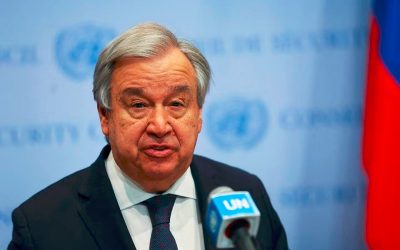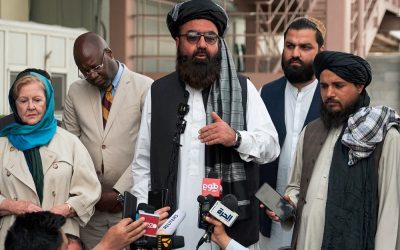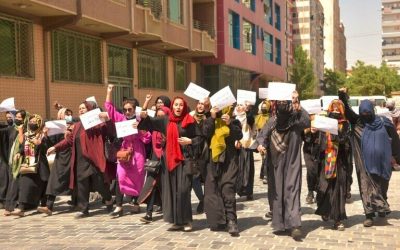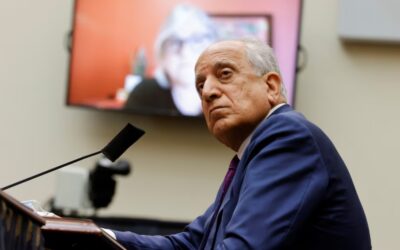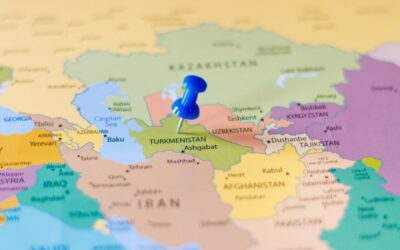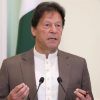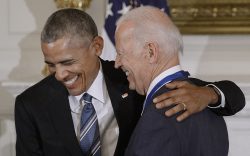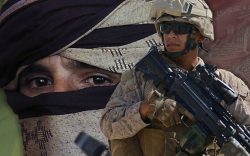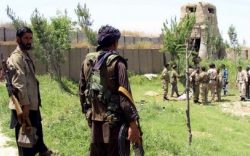
Political interference and Afghan military’s collapse
27 April 2023
Last week we had promised to identify the culpability of political interference for failing of Afghan National Defence and Security Forces (ANDSF) in the light of US findings in February 2023 report by SIGAR (Special Inspector General for Afghanistan Reconstruction), a US government entity.
The Afghan executive created under Afghanistan’s 2004 Constitution was highly centralised, in a decentralised tribal society, where historically even the king relied on a ‘confederation of tribes’ and others like clergy to run state affairs. President Ghani exhibited strong proclivities towards centralisation, control and micromanagement of even military operations, particularly during the last 18 months. This was anathema to Afghan sociology and ultimately led to the undoing of Afghan government and ANDSF.
Undue political interference in military and security planning, preferring ethnicity in appointments and frequent replacements mid-way, politicised the security sector, affecting performance. President Ghani with his Western education, job experience and internationalist outlook, tried to reform Afghan state and society without sufficient socio-anthropological insight. He and his coterie were an outcast in the 21st century Afghanistan, as subsequent events proved. In his quest to get things done as per Western yardsticks and work ethos, rather than delegate to capable aides, he monopolised authority and began to micromanage through his ‘highly centralised governance structure’ and vision for a modern Afghanistan.
Institutional reforms — like creating a National Procurement Authority to streamline acquisition, introduce efficiency and oversight and reduce corruption — were seemingly noble undertakings, but in the absence of his deeper anchoring in Afghanistan, it drove Ghani to rely upon ‘a small number of hand-picked advisers’. And this small clique not only lacked national security expertise, it was also not well entrenched in the Afghan sociology due to their dual nationalities and Ghani-like outlook and background.
After forming a National Unity Government (NUG), brokered by the US in 2014, he consolidated power in his own hands, under his office and into these closest associates, nit-picking decisions pertaining even to district levels. Non-delegation of authority and not sharing power ultimately led him to paranoia, due to overwork, and frustration with his appointees and the US. The US-Taliban parleys excluding his government furthered his disappointment, resulting in mood swings, anger and tendency to fire various officials in the middle of important undertakings.
Fearing fracturing of Afghanistan along ethnic lines, after the bitterly contested 2014 presidential elections, the US brokered a power-sharing arrangement between Ghani as President and Abdullah Abdullah as Chief Executive Officer, roughly a prime ministerial position, not existing in the Afghan Constitution. An American journalist George Packer remembered Afghans calling this skewed dispensation as “a back-room deal brokered by élites and foreigners.” NUG led to performance-paralysis and internal discord due to power struggles since there was no existing and practical division of authority between the President and the CEO. Ghani’s team, through a presidential decree, even tried to abolish the office of CEO.
State machinery remained hostage to hostile camps of Ghani and his largely Pashtun technocrats, and CEO Abdullah, his Jamiat-e-Islami and other non-Pashtun elements. Abdullah Abdullah was increasingly sidelined over key appointments, especially in Tajik-dominated ANDSF. He in retaliation ‘formed parallel structures’ to push through his own agenda, bypassing the cabinet. Both sides resorted to veto against each other in this uneasy arrangement.
Not having a clean political dispensation was a failure by the international community and Afghan leaders. However, lumping everything at Ashraf Ghani’s doorstep seems unfair, as SIGAR report and other analyses try to do. Ghani was ‘constrained for trust’ as Afghans have weak political organisation, and are inherently divided along ethnic, tribal and religious fault lines.
These differences are bridgeable only under inclusive political organisation that Afghan monarchs traditionally nurtured. Moreover, corruption has historically marred Asian societies, including Afghanistan, where state as an institution has not consolidated. Ghani in his naiveté imposed foreign solutions to a traditional, tribal and religious society to endear himself to his foreign masters. His stint as finance minister in Karzai Administration was never enough to ground him in his re-discovered homeland. Afghan communists during 1970s-80s did the same and failed.
Ghani’s governance style adversely impacted ANDSF. Expansion of the National Security Council, staffing it with officials having limited or no security expertise; procurement system; and centralising ANDSF decision-making and operations under the armed forces commander-in-chief, are some aberrations. Centralisation of military operations, intelligence, MOI, MOD and appointments within ANA and ANP under his office led to a huge bottleneck that “spurred rivalries between security ministries and directorates”. Both the President and the CEO filled agencies with their ethnic compatriots, Ghani favouring Ghalzai Pashtuns and Abdullah his fellow Tajiks. This not only alienated Afghanistan’s other ethnicities, it also undermined legitimacy of the Armed Forces, and their battlefield performance as “political partisanship permeated every level of the security apparatus”. Dysfunction caused inability to appoint “heads of key security ministries, including defense and interior”.
President-CEO factionalism was exacerbated by ex-president Karzai lurking in the background to stage a comeback. He managed to influence staffing of ‘Protection and Stability Council’ formed in 2016, with his loyalists and warlords like Abdul Rasul Sayyaf, Yunas Qanouni and Ismail Khan, etc. It weakened Ghani government’s legitimacy and “strained internal cohesion within ANDSF” benefiting Taliban consolidation. This enduring schism affected Abdullah’s achievement as head of High Council for National Reconciliation, a body created to negotiate peace with Taliban.
After a $200 million fuel-theft scandal in 2015, Ghani decreed to create National Procurement Authority (NPA) to centrally procure material for some initial years. However, an MOD, MOI contract in NPA took over six months to finalise. When in 2020, ANA’s 215 Corps needed coal, it was contracted to be supplied from Kabul and heli-distributed due to threats on ground routes. So, by end of October, MOD had exhausted procurement budget for that fiscal year, with only 71 per cent contracts executed. Besides, the Finance Ministry ‘lacked capacity to pay local contractors’ daily or weekly, causing logistic insufficiency. To overcome delays, ANA corps commanders were authorised local procurement of goods and services, however, their fiscal powers were a meagre 10 million Afghanis.
NPA also became a ‘convenient tool’ for President (who headed NPA) to bypass ministries. There were also challenges with post-award contract administration for quality and quantity. Some in ANDSF thought of NPA a ‘deliberate attempt at corruption’ to benefit favourites.
This situation stymied an already dysfunctional military system, delaying food and fuel delivery to ANA and ANP soldiers in combat zones, besides increasing costs and reducing efficiency. To learn relevant lessons, the sad story continues.
Source: Express Tribune
there is not post in layout 2
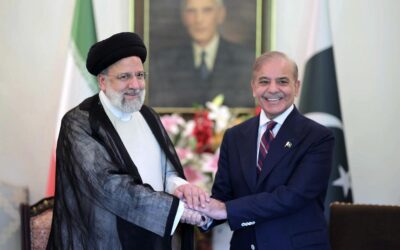
Pakistani and Iranian Leaders Commit to Strengthen Cooperation in Combating Militancy Originating from Afghanistan
Pakistan and Iran, neighboring nations with a lengthy and permeable...

